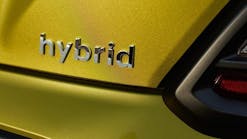Bluetooth technology is everywhere—from the watches we wear to the cars we drive. But should transportation organizations and enterprises rely upon the same technology to log and transfer business-critical data? After all, Bluetooth is a popular choice for consumer devices but—as anyone who has tried to keep wireless earbuds connected to a mobile device knows—insecure technology cannot maintain the integrity of fleet data or driver safety. Moreover, the FBI has warned that car hacking is a reality, and the Argus Research Team found a way to hack into the Bosch Drivelog OBD-II dongle allowing them to stop the engine of a moving vehicle by connecting to the dongle via Bluetooth.
Despite the warnings, many local and long-haul companies have installed consumer-grade, Bluetooth-enabled electronic logging devices (ELDs) to address regulatory compliance. The magnitude of misinformation about Bluetooth is staggering. Data continues to show that cellular-based, cloud-centric ELD solutions offer vastly improved reliability and data security for efficient fleet management, safety, and simple compliance. Bluetooth solutions simply do not perform at the same level.
Here are five of the top myths behind Bluetooth ELDs, and why fleets should use cellular-based ELDs for security and data integrity:
Myth No. 1: Bluetooth ELDs are reliable.
If you’ve ever streamed music from your mobile device to a Bluetooth headset, you already know how unreliable the connection can be. The same is true with a Bluetooth ELD. When a Bluetooth ELD loses its connection to the mobile app, the ELD keeps sending data, but the data goes nowhere. The result: driving status is lost and the driver is found in compliance violation.
Contrastly, if a cellular-based ELD loses network connection, the big data technology of intelligent fleet management systems will automatically upload and sync all driving, ending, and hours of service (HOS) data upon reconnection—virtually eliminating reliability or compliance issues. That means never losing access to any business, engine, or compliance data—HOS status, fuel waste, maintenance issues, location, trip history, and more.
Myth No. 2: Bluetooth ELDs are easy for drivers to use.
Pairing a Bluetooth ELD is something that must be done in every vehicle, every time the driver enters. In an industry where drivers are constantly changing vehicles, it is easy to forget to pair with the new ELD. Additionally, the driver is tasked with ensuring the Bluetooth connection is up-and-running every time the engine is started. If the driver doesn’t pair and connect every time, HOS data will not be captured and the driver will be in violation of the ELD Mandate.
Myth No. 3: Bluetooth ELDs are perfect for anti-theft GPS tracking.
Installing a Bluetooth ELD is very simple: plug it in to the OBD-II port and it’s on. But this simplicity comes at the steep price of reliable security. The cables are exposed, most-often running to the Bluetooth ELD device sitting on the dashboard. This connection cord be easily
disconnected. Most importantly, while many Bluetooth ELDs purport to offer GPS tracking, that functionality goes away the moment a thief discovers it sitting on the dash and either cuts the exposed cable or tosses the ELD out the window.
Cellular ELDs, however, are hidden installations in the vehicle. Not only are these hardware devices kept out of site, they are quick to set up and keep the OBD-II port open for maintenance and real-time diagnostics.
Myth No. 4: Bluetooth ELDs are secure.
An ELD is connected directly to the engine, giving hackers full access to a vehicle’s onboard computer, locks, fuel tank, brakes, and much more if the ELD is Bluetooth enabled. This leaves a vehicle with a Bluetooth ELD wide open to fuel theft, cargo theft or hijacking. The FBI has long-warned fleet managers and consumers about the dangers of third-party vehicle technology—specifically wireless technology, as it is easily hackable. Bluetooth ELDs potentially set your drivers up not only to have their loads stolen, but their physical safety can also be in danger.
Myth No. 5: Bluetooth ELDs are less expensive.
The initial cost of a Bluetooth ELD might appear lower per vehicle, or per monthly subscription fee, but the real charges are hiding in the violations drivers receive and the fines transportation companies are charged after a bad audit. From productivity hits to fines and fees to vehicle downtime due to noncompliance, Bluetooth ELD pricing is, by definition, bait-and-switch. Bluetooth ELDs place fleets at higher risk of HOS compliance complications, and a vulnerable network puts fleet cargo and drivers in a vulnerable state to hackers and carjackers. Cellular ELDs are the ultimate solution for both compliance and intelligent fleet management needs.
Not only are Bluetooth ELDs placing fleets at higher risk of HOS compliance complications, but a vulnerable network puts fleet cargo and drivers in a vulnerable state to hackers and carjackers. Cellular ELDs are the ultimate solution for both compliance and intelligent fleet management needs.


